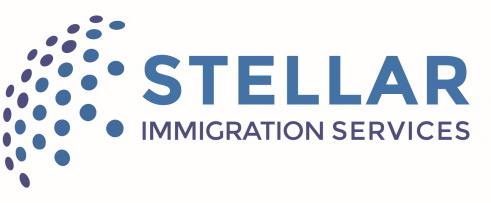As our world becomes increasingly interconnected, and we continue to be challenged by a skills shortage in certain key industry sectors such as digital technology, science and engineering, humanities and life sciences [1], attracting overseas talent to UK positions becomes an ever-more important focus.
The Global Talent Visa was introduced as a replacement for the Tier 1 (Exceptional Talent) visa, which was discontinued in February 2020. This specialised visa aims to facilitate the entry of highly skilled individuals, including humanities scholars, into appropriate UK roles that will allow them to showcase their expertise and contribute to the intellectual development of the country.
The purpose of the Global Talent Visa
The Global Talent Visa is designed to promote international collaboration whilst bolstering the growth of particular industry sectors, sharing best practice on a global scale and enriching the cultural fabric of the host country.
Eligibility for the Global Talent Visa
Humanities scholars wishing to enter the UK on a Global Talent Visa must demonstrate exceptional skills, experience and achievements in their particular field, or exceptional promise where those skills are emerging but not yet fully developed.
Applicants must be at least 18 years of age and have either won an eligible award [2] or possess an endorsement that proves leadership ability or potential. They must also demonstrate their abilities in the five key areas that are detailed below.
Academic prowess
Individuals applying for entrance to the UK under this scheme must demonstrate a strong academic background with a proven track record of their achievements which may include publications in recognised industry journals or awards. Doctoral level degrees or equivalent levels of research in related fields of study can reinforce an application, so where these qualifications exist, it is highly recommended that they are clearly detailed.
Advancement of their field
Applicants for the Global Talent Visa must demonstrate the manner in which their work has contributed to the advancement of their field. This need not be restricted to discoveries or a candidate’s input to policy, but can include contributions to theoretical frameworks and new or innovative methods of applying their knowledge which can demonstrably improve outcomes for UK business and society.
Global collaboration
Applications for the Global Talent Visa will be strengthened by a demonstration of the applicant’s ability to collaborate on a global scale. This may include membership of professional bodies, attendance at or presenting at global conferences related to their field of study or collaborations with leading scholars in the country in which they are applying for work.
Commitment to human values
Humanities scholars should demonstrate a deep commitment to human values. They should detail the way in which they will engage with society in their host country, the manner in which they will integrate with the community in which they will live and work, and the way in which they intend to disseminate their knowledge and practical applications thereof.
Support wider priorities
In order to successfully secure a Global Talent Visa, candidates would be wise to articulate the way in which their future plans and work will contribute to their host country’s societal needs and research priorities. They should detail any plans that they have for collaborating with educational institutions, any mentoring that they plan to deliver or seek from leading industry experts, and the way in which they plan to engage with the public.
A beacon of hope
The Global Talent Visa offers humanities scholars a beacon of hope. It will allow them to transcend geographical boundaries, improve their prospects, collaborate with industry experts, share best practice and contribute to the global intellectual landscape.
By attracting overseas talent into the UK, we can reduce our skills shortage, foster cultural diversity, and benefit from rapid improvements in innovation and academic development. The Global Talent Visa is necessarily restricted to only those individuals who possess exceptionally strong skill sets or promise in their chosen field and applicants must therefore take every opportunity to promote their academic ability and experience during the application process.
Although the application process is challenging, the benefits offered are significant, with successful applicants benefiting from the ability to collaborate globally with like-minded professionals, make lasting contributions to society and broaden their horizons.
Specialist help is available
Stellar Immigrations Services is a highly experienced immigration consulting service with a detailed understanding of the requirements of the Global Talent Visa. Our experts can help overseas humanities scholars to articulate the requisite skills and experience that they possess and which is required by the UK’s humanities sector.
Our services are individually tailored to the bespoke needs of our clients, so to find out how we can help you to achieve your dream of living and working in the UK, please contact us today.
Resources:
[1] https://www.gov.uk/government/publications/skilled-worker-visa-shortage-occupations/skilled-worker-visa-shortage-occupations
[2] https://www.gov.uk/government/publications/global-talent-eligible-prize-list/global-talent-science-engineering-humanities-and-medicine-prizes
